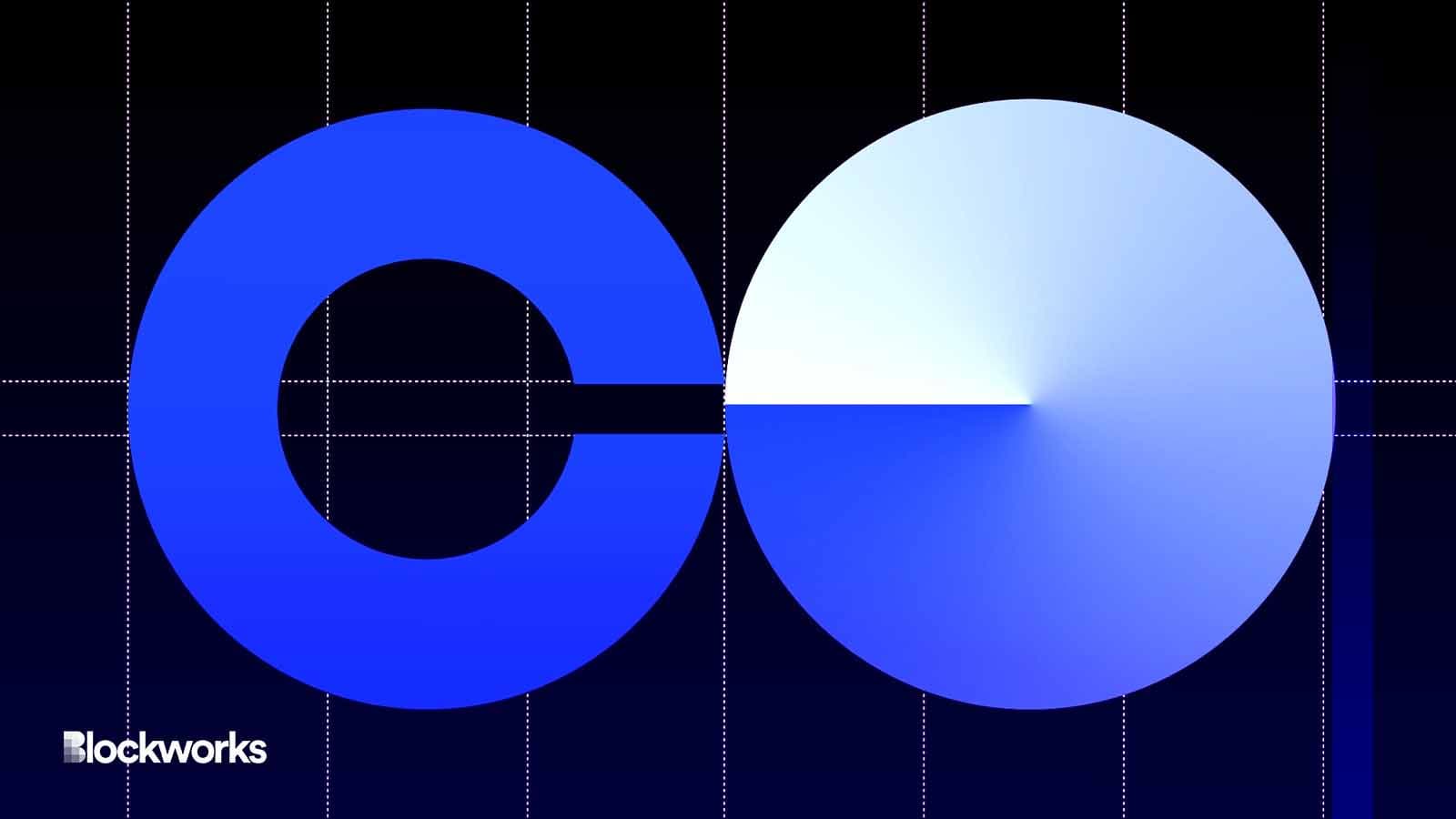Base protocol is spearheading ‘the next generation of the internet’: Coinbase’s Jesse Pollak
“We want to do more than build a great business — we want to change the world”

Base modified by Blockworks
Way back in 2016, Jesse Pollak explains, Coinbase founder Brian Armstrong wrote his vision for the company in a not-so-secret master plan.
The Coinbase protocols lead summarizes the plan: Build the protocols, then the infrastructure, and finally the consumer interfaces. “Then we’re going to have millions of dapps [decentralized applications] that billions of people use in the crypto economy.”
Speaking to Chase Chapman on the On the Other Side podcast (Spotify/Apple), Pollak says the company has a long way to go to reach the lofty goal. “We’ve been a little stalled out, right?”
“Since Bitcoin, we’re 14 years in and we don’t have millions of dapps that billions of people use. We don’t have tens of dapps that millions of people use,” he laughs.
Pollak believes that bringing Coinbase on-chain is integral to its mandate. “If we weren’t trying to figure out how to bring Coinbase on-chain and trying to figure out how to pioneer that for ourselves so other people can help follow, then we wouldn’t be working on our mission.”
“There’s a great business in the current land,” he says, “but I think we want to do more than build a great business. We want to change the world.”
Noting the recent launch of the layer-2 Base protocol, Pollak explains that the “next generation of the internet” is on-chain, adding the innovation will “increase economic freedom globally.”
The innovator’s dilemma
The concept reminds podcast host Chase Chapman of the “innovator’s dilemma” — building a new product that entices consumers away from an already successful product — “how do you put yourself ‘out of business,’ in a way?”
Building on-chain demands a challenging shift in mentality, Pollak says. “Embracing the new ways of working, the new ways that information flows and value flows and data flows. It’s a massive, massive paradigm shift in the same way that the internet was a massive paradigm shift.”
“There’s a lot of inertia that pulls, to stay in the legacy world,” he says. “Even at the most crypto-forward public company in the world, which I think Coinbase is.”
Pollak is curious to see how this movement will translate to other companies navigating the space, “either being able to make that jump and cross that chasm and overcome the innovator’s dilemma — or getting stuck.”
“I don’t know exactly how that’s gonna play out, but it’s not gonna be a walk in the park for anyone.”
Pollak expects the massive change in technology infrastructure, culture and product strategy will require “a lot of introspection at large organizations” who will need to figure out how to be successful in the “next generation of the internet.”
Part of the problem is that corporations are “top-down” in nature, Pollak says. “It flows from the leader of that organization and then flows through the leadership team. There’s all these things that are done to inculcate the culture and align people to it.”
But Pollak says that a decentralized blockchain culture builds from the bottom-up. “You want people to feel like they can create culture independently,” he says. “They can create their own microcosms of what’s going on and who they want to be interacting with.”
The trick is to find a balance, Pollak explains. “How do you come from that place of a more top-down corporate culture, and then how do you seed and create space for this more bottom-up, decentralized culture? I don’t think we have a perfect answer.”
“Base has been live for 10 days,” Polak says, “but in those 10 days, it’s happening. There’s the people. They’re popping up. They’re creating Twitter accounts and memes and they’re building cool little projects and they’re dropping them.”
“That’s been so inspiring and so heartwarming for me to see and experience. Two years of working on something and then feeling like — whoa — now, it’s a little out of my hands.”
Get the news in your inbox. Explore Blockworks newsletters:
- The Breakdown: Decoding crypto and the markets. Daily.
- 0xResearch: Alpha in your inbox. Think like an analyst.






